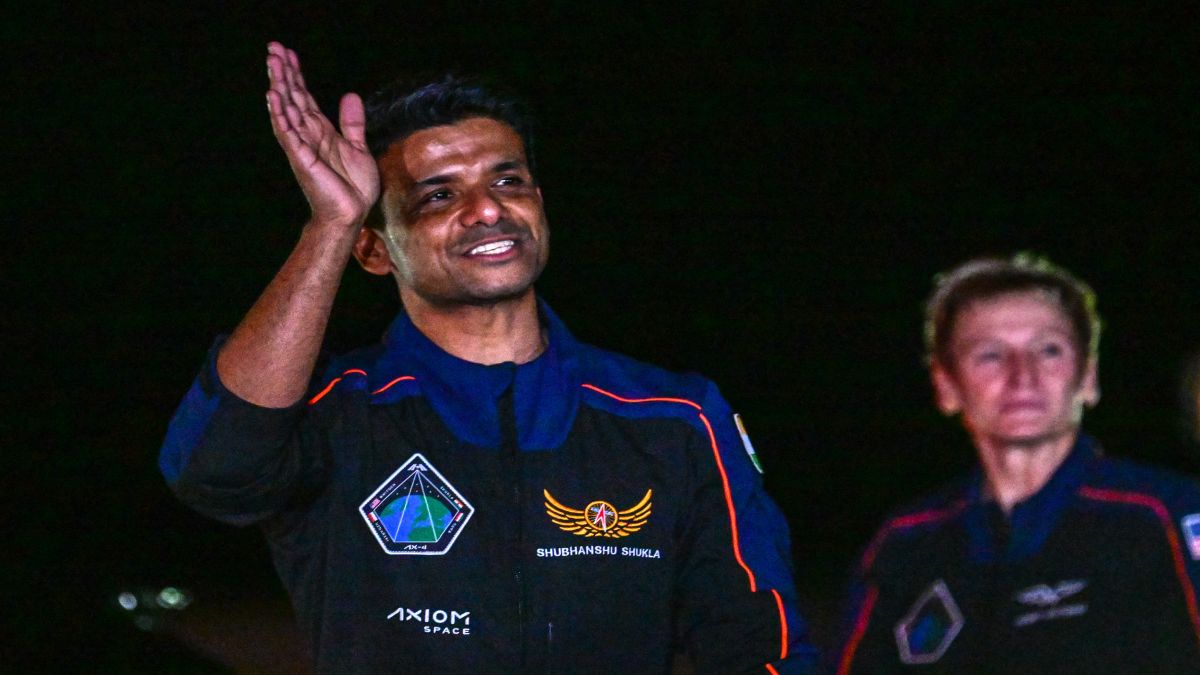India’s space agency has revealed that its intervention may have prevented disaster during the launch of Group Captain Shubhanshu Shukla, the first Indian in four decades to travel to space.
Speaking in Bengaluru on Thursday (August 21), Indian Space Research Organisation (Isro) chairman V. Narayanan said engineers from SpaceX’s Falcon 9 team “took lightly” a pre-launch oxidiser leak detected before the Axiom-4 mission lifted off on June 25. The leak, he said, could have led to a “catastrophic failure” if not for Isro’s insistence on a full investigation.
The $65 million (Rs 548 crore) mission carried Shukla and three other astronauts to the International Space Station and back. Beyond the symbolism, it has offered important lessons for India’s upcoming Gaganyaan programme, which aims to send Indian astronauts into orbit by mid-2027.
A contested delay
The Axiom-4 launch had already been postponed four times. On June 11, a fresh scrub was ordered when a liquid oxygen leak was picked up during an engine test. Narayanan disclosed that SpaceX staff initially dismissed the anomaly as minor. “I think they assumed that this was a minor leak because it wasn’t their ‘leak’ sensor but an oxygen sensor that had picked up (the leak). We learnt of this from the press” he said.
According to Narayanan, Isro’s team pressed for answers but received little cooperation. (a press conference by SpaceX the previous day) and when we asked them the location of the leak, they said they couldn’t find it. This was shocking to us. Then we asked them for the rate at which oxygen was leaking out; they said this couldn’t be shared as it was “confidential” data. “We asked them nearly 14 questions; only two were answered,” he said.
“ISRO has 40 years of experience with liquid engines, and we know that if there is a block somewhere, it can be rectified, but if the source of a leak is due to a crack, it cannot be allowed. We insisted on a “complete correction”[…] During the tests, it emerged that the crack was widening; we have the data. If the rocket were to lift off with such a crack, the ensuing vibrations will cause it to give way," Narayanan said.
Impact Shorts
More Shorts“That will only result in a catastrophic situation… They probably took this a little lightly,” he said.
Repairs and eventual liftoff
The following day, SpaceX repaired the leak and carried out further tests to Isro’s satisfaction. Additional complications, including leaks detected in the Russian service module of the ISS, delayed the launch further until June 25, when Falcon 9 finally carried Shukla and his crewmates to orbit.
Asked whether Narayanan’s intervention had “saved his life,” Shukla said, “Everyone who does human space flight missions are very responsible. There were multiple postponements, and this wasn’t the only reason. It helped that we had technical expertise from Isro and these discussions happened. Ultimately this is what builds trust. Isro, Nasa and SpaceX have always been transparent and have had regular briefings on emerging issues."
)